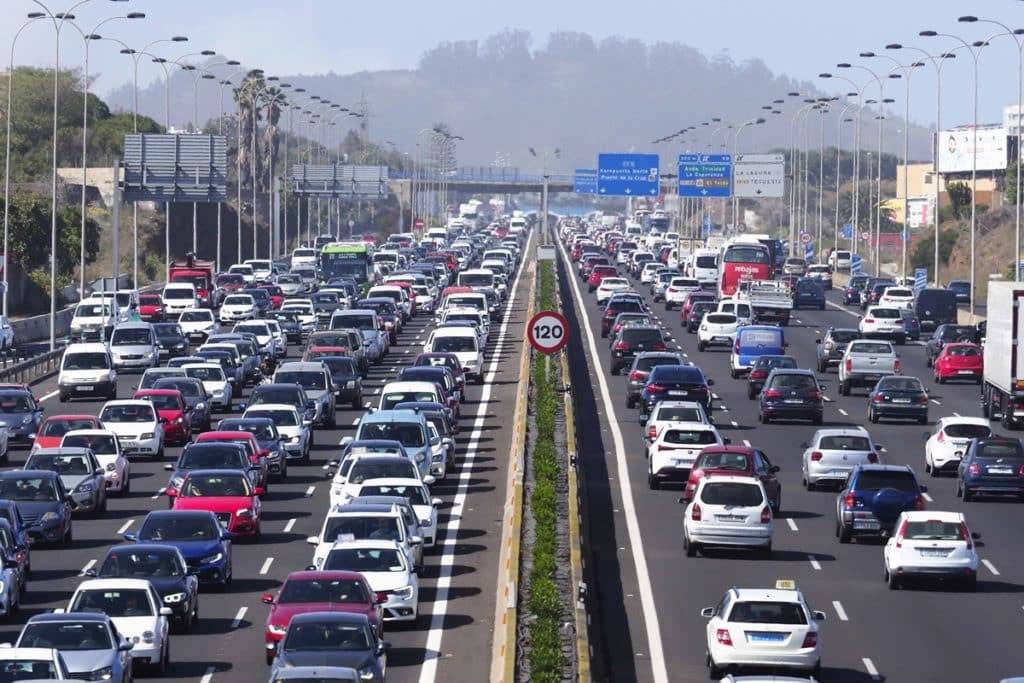Population growth is the main problem in the Canary Islands
- 12-12-2023
- National
- Canarian Weekly
- Photo Credit: DA
The Canary Islands have experienced an unprecedented population increase. In 1900 the archipelago had just over 300,000 inhabitants, and in the first two decades of this century it has gone from 1.6 to 2.2 million inhabitants, which represents an increase of more than 30%. In the last 25 years, the population has increased by 180% and 102% on the islands in Lanzarote and Fuerteventura.
At this same time, the Basque Country, which is a community with a population similar to ours, increased by only 5%. This phenomenon, although it can be interpreted as an indicator of prosperity, poses significant challenges that require immediate attention and control and sustainable development strategies.
Furthermore, Gran Canaria, and especially its eastern coastal strip, is at the epicentre of this population growth that raises crucial questions about the sustainability and capacity of the island to manage its population increase.
This island, with its geographical and climatic diversity, has long been a desired destination for both tourists and those seeking to settle in an idyllic environment, as well as for the various business opportunities it generates.
However, this natural charm has been threatened by a population increase that has exceeded the island's abilities to maintain environmental balance. Although 42% of the territory is protected, the demographic density in Gran Canaria is 544 inhabitants per square kilometre.
The ecological and carbon footprint associated with population growth is one of the biggest challenges we face. The increase in demand for natural resources, urban expansion and increased energy consumption directly contribute to environmental degradation.
The fragility of island ecosystems makes it even more vital to address these issues quickly, before the environmental consequences become irreversible.
At the moment the ecological footprint of the Canary Islands is well above the world average. If everyone consumed resources as they do on the islands, 3.84 planets would be needed to cover that demand. But we only have one. The urban or peri-urban space exceeds 24% of the territory, for every 100 square kilometres we have 60 kilometres of roads, the vehicle fleet exceeds 880 vehicles per 1,000 inhabitants. With the consequent traffic co-management, plus water and energy consumption, it’s easy to see how the problem is compounding.
This disproportionate increase in population also has effects on the decline in GDP per capita that we are experiencing. In 2016, a study by the DISA Foundation found that 70% of the process of economic divergence of the Canary Islands with respect to the European average is explained by the evolution (increase) of the population.
Even if we manage to increase GDP, if the population continues to grow at this rate, we will continue to become poorer. That is why the indicators of structural poverty - which revolve around a third of the population - have not been remedied in decades.
That is why there is increasingly alarming data on the loss of quality in essential services such as health, with long waiting lists, and queues in A&E, and in the resolution of benefits.
Another of the most recent negative consequences that is being experienced is the shortage of housing and its very high price, both for rent and purchase. This is an impediment to the harmonious development of society. The lack of efficient urban planning and increased demand has led to congestion in urban areas, affecting the quality of life of residents. The disproportionate increases in housing prices are leaving many local citizens, especially young people, without the possibility of accessing a decent home.
To achieve sustainable development, it is imperative to address these concerns head-on. First of all, it is essential to implement policies that regulate population growth. Urban planning must prioritize the conservation of natural spaces and limit uncontrolled urban expansion. Setting limits on construction in environmentally sensitive areas and promoting the rehabilitation of existing urban areas are crucial steps.
Additionally, the island must focus on the adoption of renewable energy sources and the implementation of sustainable practices in all sectors. Promoting sustainable mobility, investing in green infrastructure and promoting energy efficiency are key measures to reduce the carbon footprint. Environmental awareness must also be promoted among the population, encouraging more ecological practices on a daily basis.
The real commitment to sustainable tourism must be a priority. Tourism success cannot be based on unlimited growth. It is impossible due to the scarcity of the territory and the limitation of resources. The solution necessarily involves tourism that spends more time during the average stay on the island and that generates more spending during the time they are here.
However, the fact that it is urgent for us to address the population issue in the Canary Islands quickly and seriously, should not lead to racist, xenophobic or anti-immigration discourses. Because the truth is that according to INE data, of the 292,542 foreigners that reside in the Canary Islands, almost half (134,837) are from European community countries, 84,660 come from the Americas (mostly South America) and only 26,579 are Africans. And in this statistic, we are leaving out residents who have come from other regions of Spain, which also represent a significant number of people in the Canary Islands.
But at the same time that this is happening, there are areas of the islands (inland and peaks) that have depopulation problems, and even entire islands like La Palma, which is losing population and what it has, is increasingly aging. As we see, it is a complex reality to manage, which is why we often talk about a demographic challenge.
In conclusion, population growth throughout the Canary Islands poses significant challenges for the environmental, social and economic sustainability of the archipelago. The ecological and carbon footprint has reached worrying levels and it is imperative to take measures to reverse this trend. The adoption of policies that regulate growth, the promotion of sustainable practices and environmental education are essential steps towards sustainable development that guarantees an adequate standard of living for our population… as many experts warn us, it cannot be delayed any longer.
Other articles that may interest you...
Trending
Most Read Articles
Featured Videos
TributoFest: Michael Buble promo 14.02.2026
- 30-01-2026
TEAs 2025 Highlights
- 17-11-2025



























































